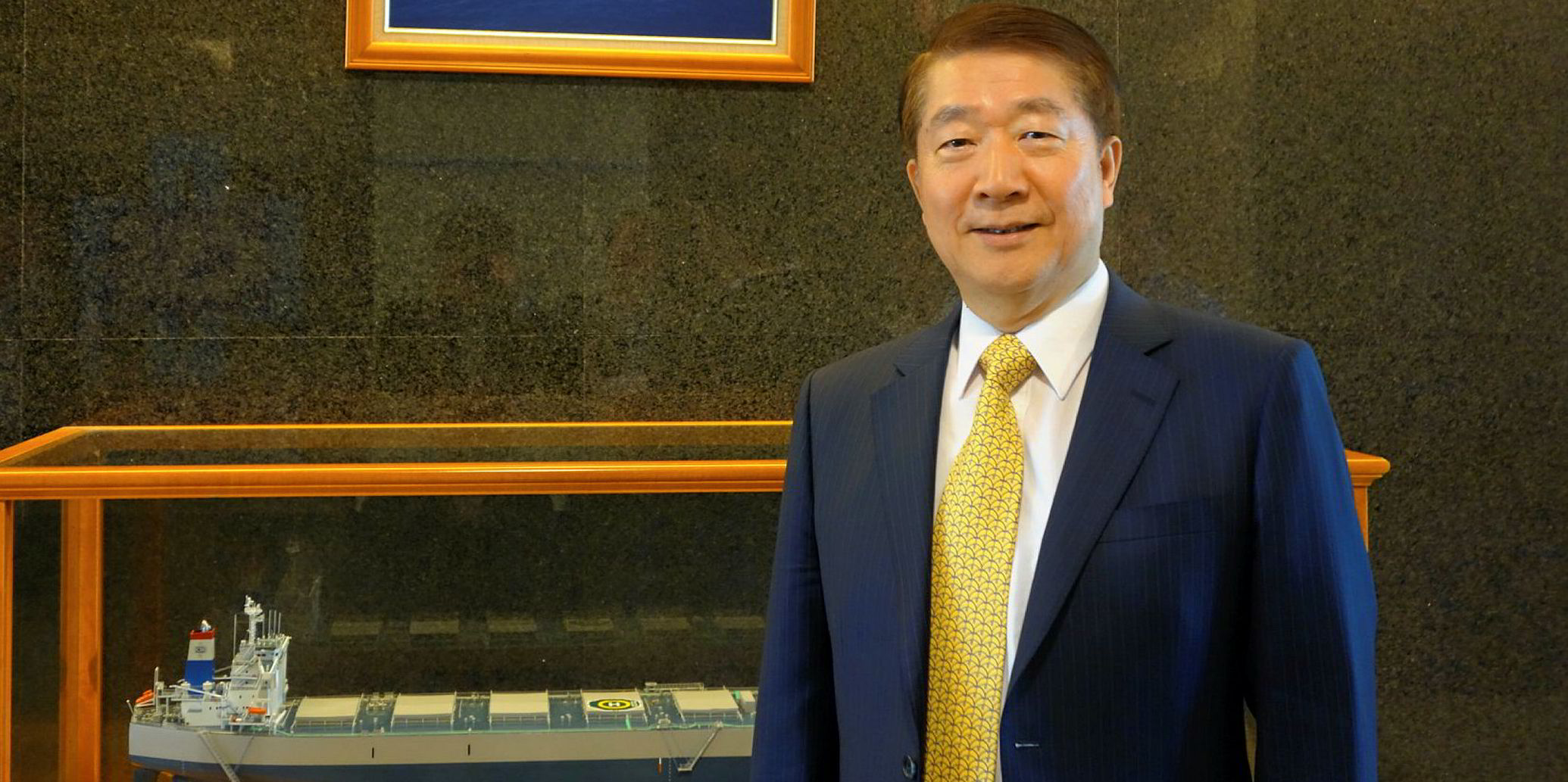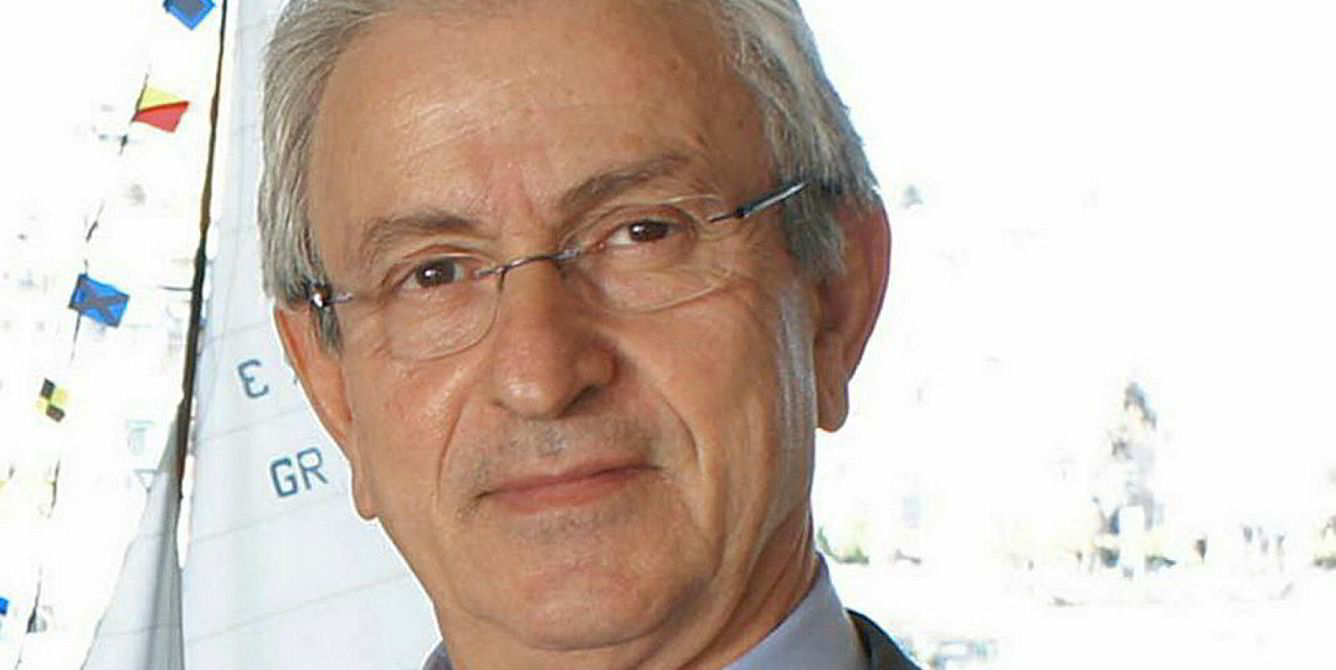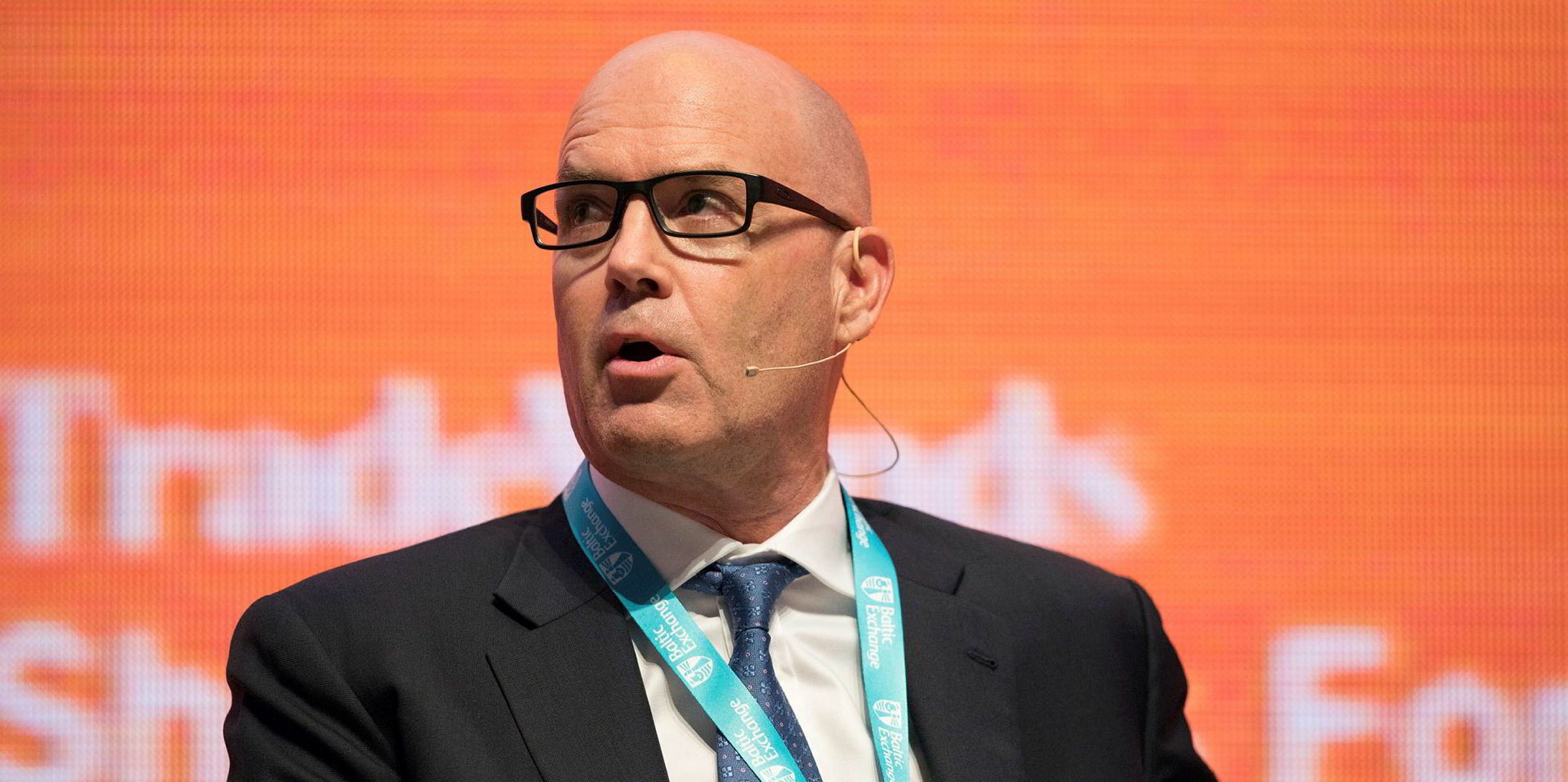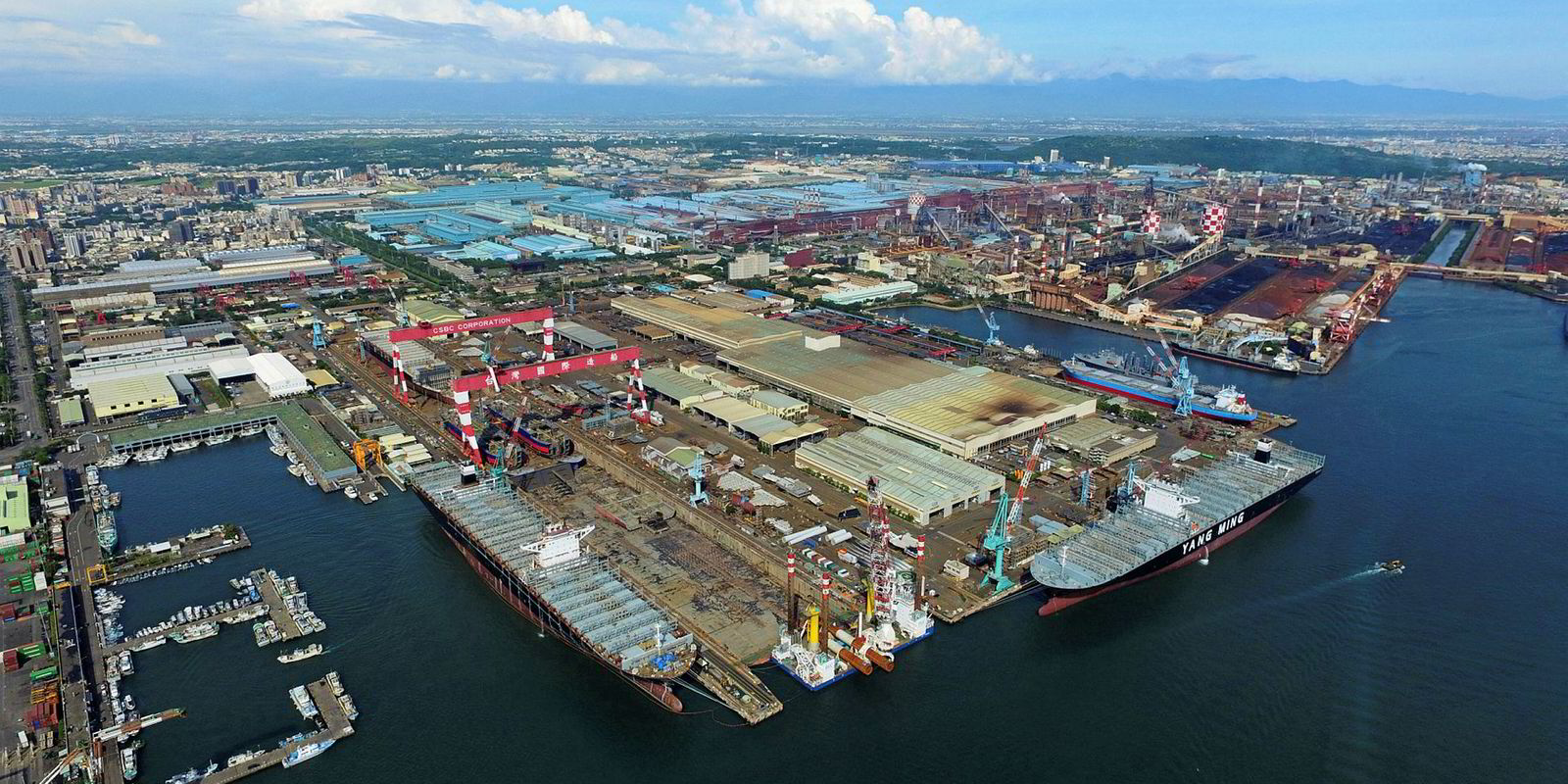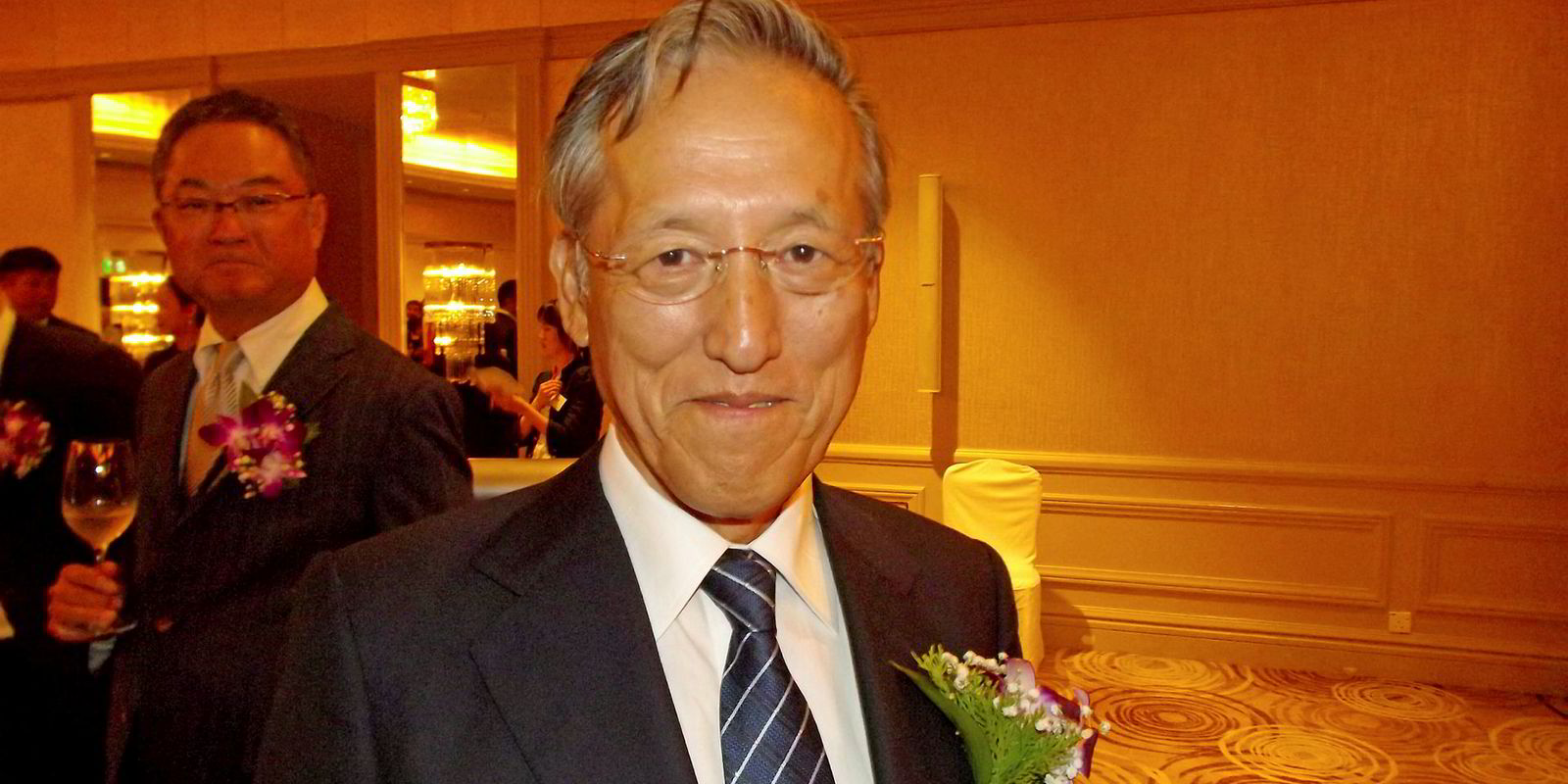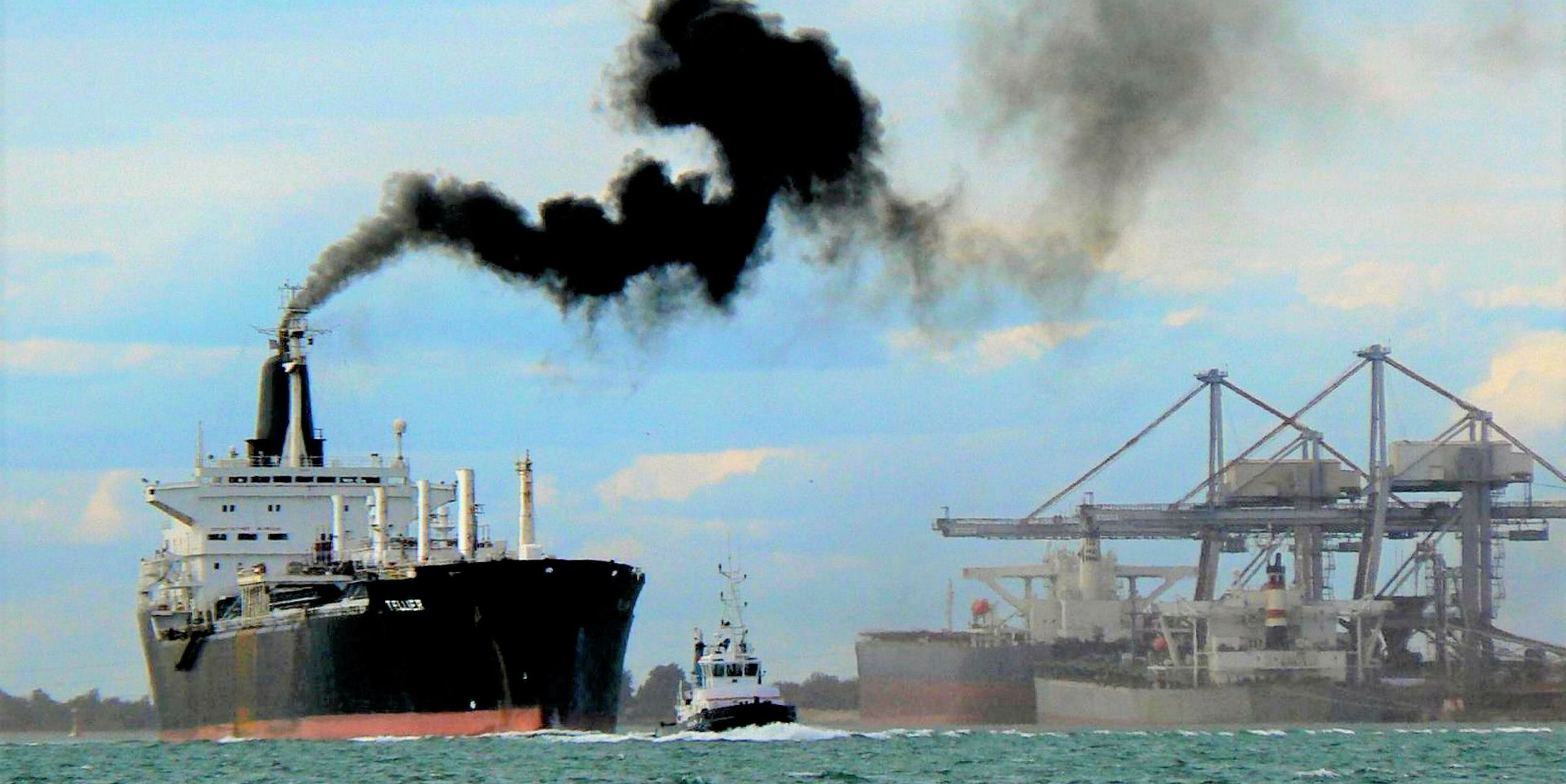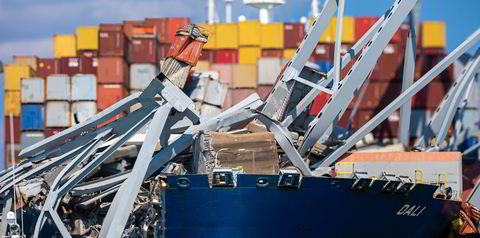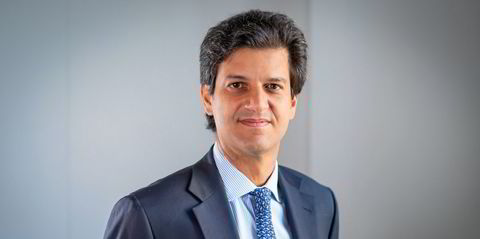China Steel Express, the shipping arm of Taiwan’s largest steel producer, has begun to sell some of its oldest vessels as part of its fleet renewal.
Brokers said the 176,000-dwt China Steel Growth and China Steel Excellence (both built 2002) were put on the sales block recently, and an unnamed Chinese firm may pay $20m for them enbloc.
China Steel Express has a stated goal of selling four aged capesize bulkers by 2023, although company executives stressed the actual timings of sales would depend on market conditions.
The other two sales candidates are the 176,000-dwt China Steel Integrity (built 2002) and China Steel Responsibility (built 2003).
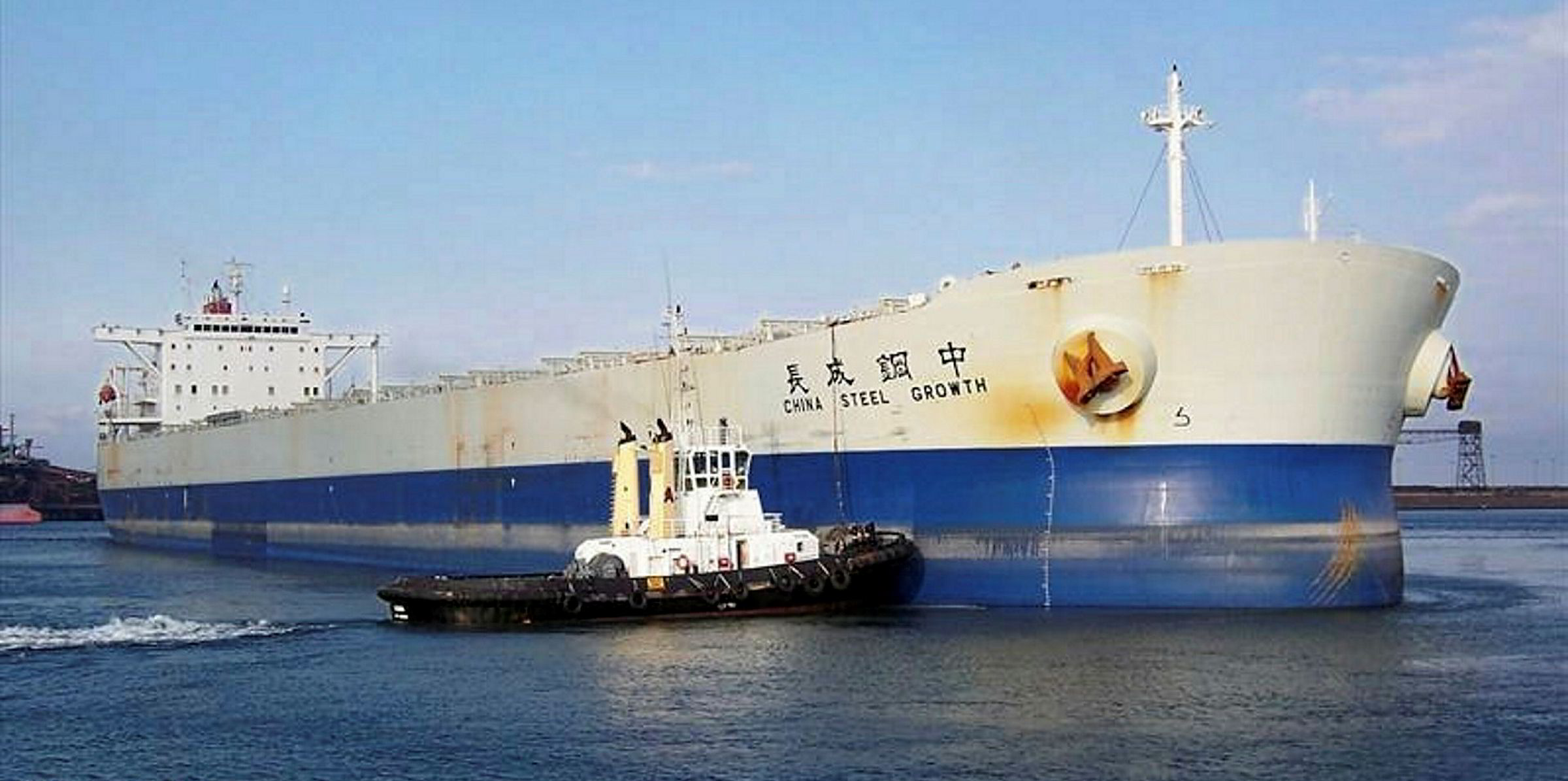
The Kaohsiung-based shipowner is selling the vessels as it started taking delivery last year of eight 208,000-dwt newbuildings, five of which have been delivered with another three coming this year.
“Four of the eight are fitted with scrubbers,” chairman Samuel Lee told TradeWinds. “This is to mitigate the risks associated with the price spread between high-sulphur and low-sulphur fuels.”
The IMO sulphur cap, which as of 1 January allows ships with exhaust gas scrubbers to continue burning high-sulphur fuel oil while the remainder have to use fuel with no more than 0.5% sulphur content, has led to a wide spread between fuel prices.
Clarksons Platou Securities estimated daily earnings of scrubber-fitted capesizes exceeded those of non-scrubber vessels by $8,100 per day as of Tuesday.
“The spread will eventually narrow … the production of IMO 2020-compliant fuel will increase from a long-term perspective,” Lee said.
Prudent approach
Established in 1996 by China Steel, which is 20% owned by the Taiwanese government, China Steel Express has 19 capesize and seven handysize bulkers in operation.
In principle, the company is responsible for its parent’s shipping requirements.
“The larger ships are often used to carry imports of coking coal and iron ore, and the smaller ones for exports of steel,” Lee said. “We also charter vessels in spot trade on voyage charters for our parent’s shipping demand.”
The stable business model has maintained China Steel Express’ profitability. Audited results showed it recorded pre-tax profits of TWD 2bn ($66.7m) on revenues of TWD 17.8bn in 2018, with group business — negotiated on an arm’s length basis — accounting for 88% of its gross profits.
“We are a wholly owned subsidiary, so everything we do will be reflected in our parent’s consolidated results,” said Lee, adding that his company has to be self-sustainable.
“We do receive support from our parent, but we also need to create revenues and profits. We need to contribute to China Steel.”
Company executives cited timings of newbuilding contracts as an example of its prudent approach.
In 2017 and 2018, when newbuilding prices were at historic lows, China Steel Express booked two scrubber-fitted capesizes at $47.5m each at compatriot Taiwan CSBC and another two at $46m each. It also ordered two non-scrubber capesizes from Japan Marine United at $45m each and two at $46m each.
The prices are based on a shallow-draught design to meet the import requirement of China Steel’s Kaohsiung plants that can produce 10m tonnes of crude steel per annum.
A general, non-scrubber capesize bulker would now cost $49.5m to build, according to Clarksons.
“We took advantage of the low newbuilding prices … Those earlier deals are creating potentially large profits for us,” a company report stated.
Decarbonisation
In October, the IMO is scheduled to determine the initial decarbonisation rules that would help reduce greenhouse gas emissions from international shipping by 50% from the 2008 level by mid-century.
While Taiwan is not a member of the United Nations' body, China Steel Express’ vessels will need to meet the regulations as they are engaged in international trade.
“Decarbonisation is the industry trend, and I am positive about it,” said Lee. “LNG propulsion [as decarbonisation means] is a very interesting topic and we are gathering more opinions on this.”
However, Lee said his company does not have any specific plan for more newbuildings for the moment.
“All would depend on our business requirement and newbuilding prices … The timing needs to be right as this is a cyclical business,” Lee said.
